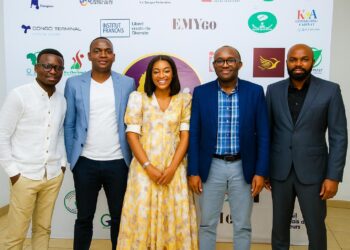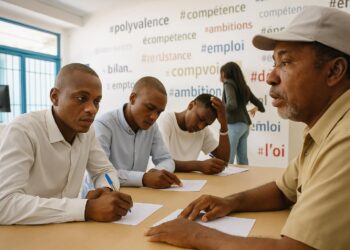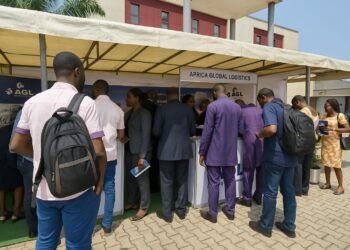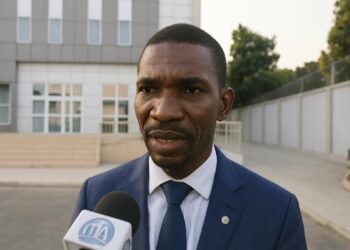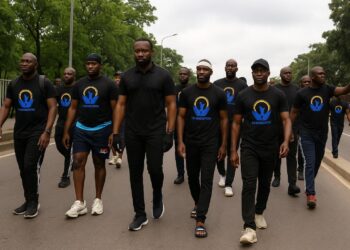Second Edition Targets Advanced Students
The Centre of Excellence of Oyo for Renewable Energy and Energy Efficiency has unveiled the second edition of its national scholarship programme for Congolese students enrolled in master 2 or post-master tracks at public universities (Centre d’Excellence d’Oyo).
By repeating the call, the institution confirms its intent to create a steady pipeline of local researchers able to tackle technical and economic questions linked to the energy transition. The renewed initiative signals continuity and consolidation rather than a one-off gesture.
Objectives Focused on Innovation and Relevance
The scholarship’s stated aim is to foster academic and scientific excellence nationally while backing innovative research projects in renewable energy and efficiency fields. Priority lies in solutions adapted to domestic energy needs, a criterion that places context-sensitivity at the heart of the programme.
Supporting problem-solving research on photovoltaic integration, bioenergy optimisation or demand-side management—topics frequently cited by Congolese lecturers—could help bridge gaps between theoretical study and practical deployment across urban and rural grids.
Application Window and Key Deadlines
Candidates have until 31 October to submit complete online dossiers. The timeline offers applicants roughly five months to refine proposals and secure the required endorsements, an interval designed to encourage thoughtful, well-structured submissions rather than last-minute filings.
Successful applicants will receive their awards from January 2026, giving the centre ample time to evaluate projects, match scholars with supervisors and finalise logistical arrangements. The long lead-in underscores a commitment to rigorous selection and planning.
Comprehensive Support Package
Winners will benefit from a monthly allowance, accommodation within the Oyo campus and privileged access to its laboratories, instrumentation and scientific mentorship. This integrated support frees students from day-to-day financial pressures and allows them to concentrate on experimentation and publication.
Housing scholars onsite also facilitates peer exchange and benchmarking across disciplines, creating a resident community of emerging specialists whose cross-fertilisation may spark collective breakthroughs.
Online-Only Submission Protocol
The centre requires exclusively digital applications. Candidates must upload a research proposal, motivation letter, academic transcripts, two recommendation letters and a supervisor’s engagement confirmation.
The dedicated portal is presented as a single gateway, centralising data and simplifying auditing. Digital-first procedures reflect the centre’s broader orientation toward efficiency and transparent record-keeping, elements that can strengthen donor confidence and institutional accountability.
Ensuring Academic Rigor
Demanding a supervisor’s commitment letter adds an extra layer of quality control. It obliges home-institution faculty to remain actively involved, anchoring projects within existing departmental expertise and discouraging orphaned studies without clear academic oversight.
Similarly, the double recommendation requirement offers the selection committee a multi-angled view of each applicant’s research aptitude, soft skills and perseverance, traits critical for laboratory work that often confronts unforeseen setbacks.
Strategic Value for National Energy Goals
Although the scholarship call does not set quantitative targets, nurturing home-grown expertise aligns with Congo-Brazzaville’s broader ambition to diversify its energy mix and improve reliability. Training researchers capable of modelling resource potential or designing efficient systems supports evidence-based policymaking.
In turn, robust local data and prototype testing can underpin future investment frameworks, helping both public authorities and private investors gauge technical feasibility and bankability with greater precision.
Contribution to Human Capital Development
The centre emphasises that investment in advanced training bolsters the country’s knowledge economy. By funding post-graduate work, it complements undergraduate expansion policies and addresses the higher-skill segment, often cited as a bottleneck in technology-intensive sectors.
Graduates equipped with specialised competencies in renewables may later join utilities, engineering firms or regulatory bodies, diffusing expertise across the domestic market and reinforcing sectoral resilience.
Research Environment at Oyo
Located in the country’s northern corridor, the Oyo campus offers laboratories configured for material testing, energy system simulation and efficiency auditing. Onsite accommodation places scholars steps away from equipment, shortening iteration cycles between design and measurement.
The campus setting also facilitates informal dialogue with resident scientists, an aspect many alumni credit for refining methodologies and accelerating peer review before journal submission.
Looking to January 2026 and Beyond
From January 2026, scholars will integrate into the centre’s ongoing projects, ensuring momentum from day one. Early immersion could expedite data collection and foster inclusion in multi-year studies already under way at the facility.
Over time, completed dissertations may feed a repository of open, context-specific findings, offering future cohorts a springboard for follow-on experiments and comparative analysis.
Why Timing Matters
The 31 October deadline falls well before most academic years commence final-semester examinations, reducing scheduling conflicts for prospective candidates.
Meanwhile, the fifteen-month gap to award activation gives selected students latitude to finalise coursework, refine literature reviews and troubleshoot experimental designs in consultation with both home and host supervisors.
Transparency and Accountability Measures
Publishing clear eligibility rules and evaluation criteria on the centre’s website institutionalises fairness. Digital records of submissions facilitate audit trails, while staged assessment phases—administrative screening followed by scientific review—create checks that can deter bias.
An open call also invites scrutiny from academia, civil society and industry, indirectly motivating the centre to uphold high selection standards.
Opportunities for Industry Linkages
Although not explicit in the call, scholarship recipients typically engage with domestic firms through internships or joint experiments once research designs mature. Such interactions can ground theoretical work in market realities and familiarise companies with emerging talent.
For students, industrial exposure offers insights into operational constraints and potential commercialisation pathways, enriching dissertations and enhancing employability.
Encouraging Women in STEM
The centre reiterates its commitment to inclusivity, encouraging female candidates to apply. Increased gender representation in advanced energy studies can diversify problem-solving approaches and widen the talent pool available to future employers.
Providing on-campus lodging may particularly benefit women navigating safety or family-related concerns linked to relocating for research work.
Building a Research Community
Cohorts drawn from multiple universities foster networks that outlive the scholarship period. Alumni associations can evolve into advisory groups, disseminating best practices and pooling equipment access across institutions.
Collective identity nurtured in Oyo may also spur joint grant applications to regional or continental funding schemes, amplifying the centre’s initial investment.
Digital Presence as Outreach Tool
The centre’s decision to centralise information on its web platform allows applicants, supervisors and observers to track updates in real time. Online FAQs, tutorial videos and inquiry forms reduce information asymmetry and potentially expand the geographic reach of the call beyond major cities.
Such visibility can strengthen the centre’s brand and position it as a reference point for renewable-energy scholarship in Central Africa.
Next Steps for Prospective Applicants
Interested students should first verify eligibility, then refine a research question that addresses a tangible energy-efficiency or renewable-generation challenge. Collecting transcripts early and requesting recommendation letters well ahead of the 31 October deadline can mitigate last-minute delays.
Drafting the motivation letter with concrete objectives and expected outputs may further distinguish an application in a competitive pool.
Final Considerations
By combining financial support, accommodation and advanced facilities, the Oyo Centre’s scholarship offers a compelling platform for Congolese talent poised to contribute to the country’s energy future. Applicants have a defined timeline and transparent criteria; preparation and clarity will be key to success.
Those admitted in January 2026 stand to benefit not only from material resources but also from a collaborative ecosystem designed to translate research into impactful practice.


































